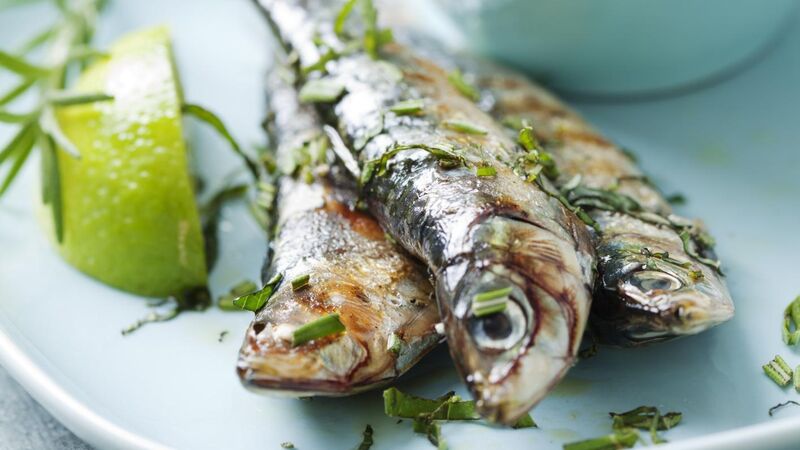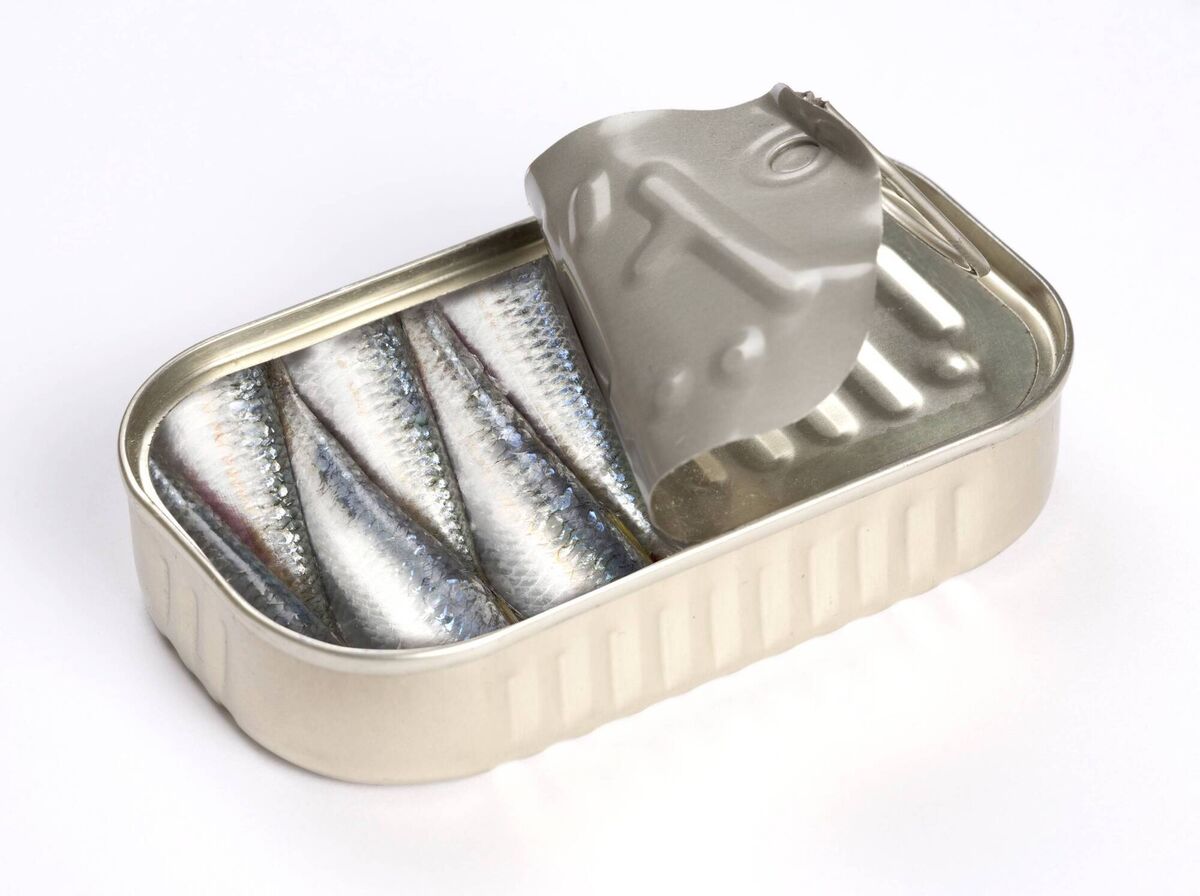The secret benefits of the humble sardine

Sardines may protect bone health and muscle growth, linked to their high levels of protein, magnesium, vitamin D and calcium.
Sardines often get a bad rap as a cheap, old-fashioned, tinned staple, crammed full of headless fish, and lurking in the back of the kitchen cupboard – possibly for years.
The alternative is the notion of sitting alongside a Portuguese quay where local fishermen pull up to the pier wall and toss a haul of sardines onto the nearest table.
They go straight onto a charcoal grill to be served up 20 minutes later with a fresh salad, a bowl of olives and a chilled glass of wine - as the waves sparkle and the sunshine warms your bones.
I remember sardine sandwiches at school, which I enjoyed but my classmates detested, wrinkling their noses and refusing to sit beside me until they were eaten.
Sardines are bursting with nutrients, including omega-3 fats, protein, and calcium; all essential for heart health, brain health, and strong bones.
Nutrition and health benefits
While many people, including older adults, struggle to maintain optimum levels of protein and other nutrients in their diet, sardines are densely packed with vitamins and minerals. Because they are high in protein, they promote fullness, helping the regulation of blood sugar and to maintain a healthy body weight.
One 3.75-ounce can of sardines provides 22.6g of protein. The European Food Safety Authority recommends about 0.83g per kilo of body weight daily. So, for an adult weighing about 70kg, that’s well over a third (39%) of our daily protein requirement of 58.1g.
Protein is vital for building and repairing muscles, bones and organs, and is also involved in making antibodies to fight infection, enzymes to digest food, as well as a multiplicity of hormones to keep all our bodily systems ticking over.
As we age and begin losing muscle mass at the rate of about 1% per year over the age of 40, having adequate levels of protein in our diet becomes more important than ever, to guard against loss of both muscle mass and muscle strength.

Sardines also contain high levels of vitamins B12, calcium, iron, and selenium – all of which older adults can struggle to maintain at an optimal level. Vitamin B12 is essential for a healthy brain and nervous system, and iron is key to the transport of oxygen around the body.
Sardines are a rich source of the health-promoting and anti-inflammatory omega-3 fats. The research shows that diets rich in these omega-3 fats protect against atherosclerosis (plaque build-up in the walls of arteries) and reduce triglyceride levels, which are linked to increased risk of both heart disease and stroke.
One review found that people with the highest blood levels of omega-3s were 15% less likely to die from heart disease.
Eating sardines can also help to regulate blood sugar and protect against the development of type 2 diabetes. The high levels of protein, magnesium, and zinc that are known to support healthy blood sugar regulation may play a key role here.
Many studies have shown a link between diets that are high in oily fish, such as sardines, and lower rates of both cognitive decline and certain cancers. This includes risk of dementia and common cancers such as breast and colorectal cancer, as well as liver cancer.
Sardines may protect bone health and muscle growth, linked to their high levels of protein, magnesium, vitamin D and calcium.
One typical can of sardines contains over a quarter (27%) of your calcium needs, and over a fifth of daily needs for Vitamin D.
As both of these nutrients are essential for bone health, incorporating sardines into your diet could play a key role in maintaining healthy bones and protecting against osteoporosis.
As well as maintaining healthy bones, Vitamin D is increasingly seen as necessary for healthy immunity. Vitamin D insufficiency is common, particularly in countries with minimal year-round sunshine, so vitamin-D-rich food can provide an important boost to maintaining adequate levels of this vital nutrient.
Risks related to eating sardines
Though there are lots of benefits to eating a variety of fish, seafood can be contaminated with several harmful substances, including mercury and the increasing levels of microplastics that are contaminating the oceans.
Mercury levels tend to be higher in larger, older fish and much lower in small fish like sardines. For that reason, oily fish is generally recommended to be eaten no more than twice a week to maximise health gains and minimise the risks.
The Irish Heart Foundation recommends eating fish, particularly oily fish rich in omega-3 fatty acids, twice a week to reduce your risk of heart disease and stroke.
The bones in sardines are soft and edible, and provide a great source of calcium. Sardines can be added to pasta, or used to top pizza and flatbreads, served with crackers or tossed in salads.
Tinned sardines are generally good for you, but some are better than others. Check the salt content, as some brands will add excess salt, which you don’t need.
The healthiest sardines in a tin are those that are packed in olive oil for its heart-healthy fats.
After all that, if you are generally not partial to sardines, the Irish Heart Foundation recommend at least two portions of fish per week, including at least one portion of oily fish such as salmon, trout, mackerel, or fresh tuna.
Despite all the recommendations, most of us do not eat enough fish. So, it is important to think about how we can get more fish into our diets. And one way is by focusing on one of the smallest and most nutritious of them all – the humble sardine.
They are very affordable, very versatile and a very well-kept secret in terms of their benefits to the heart, brain, muscles and bones.







 App?
App?


